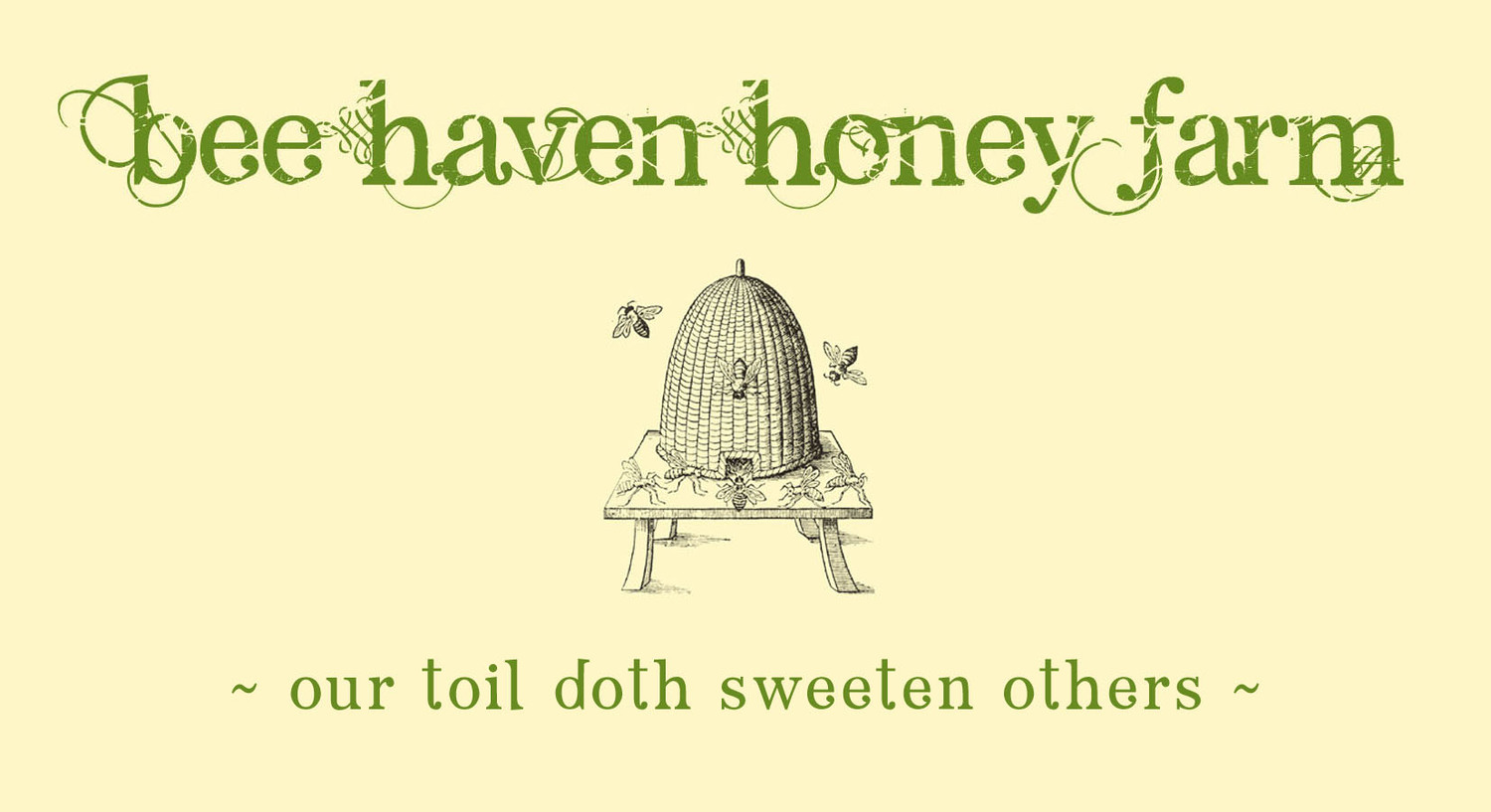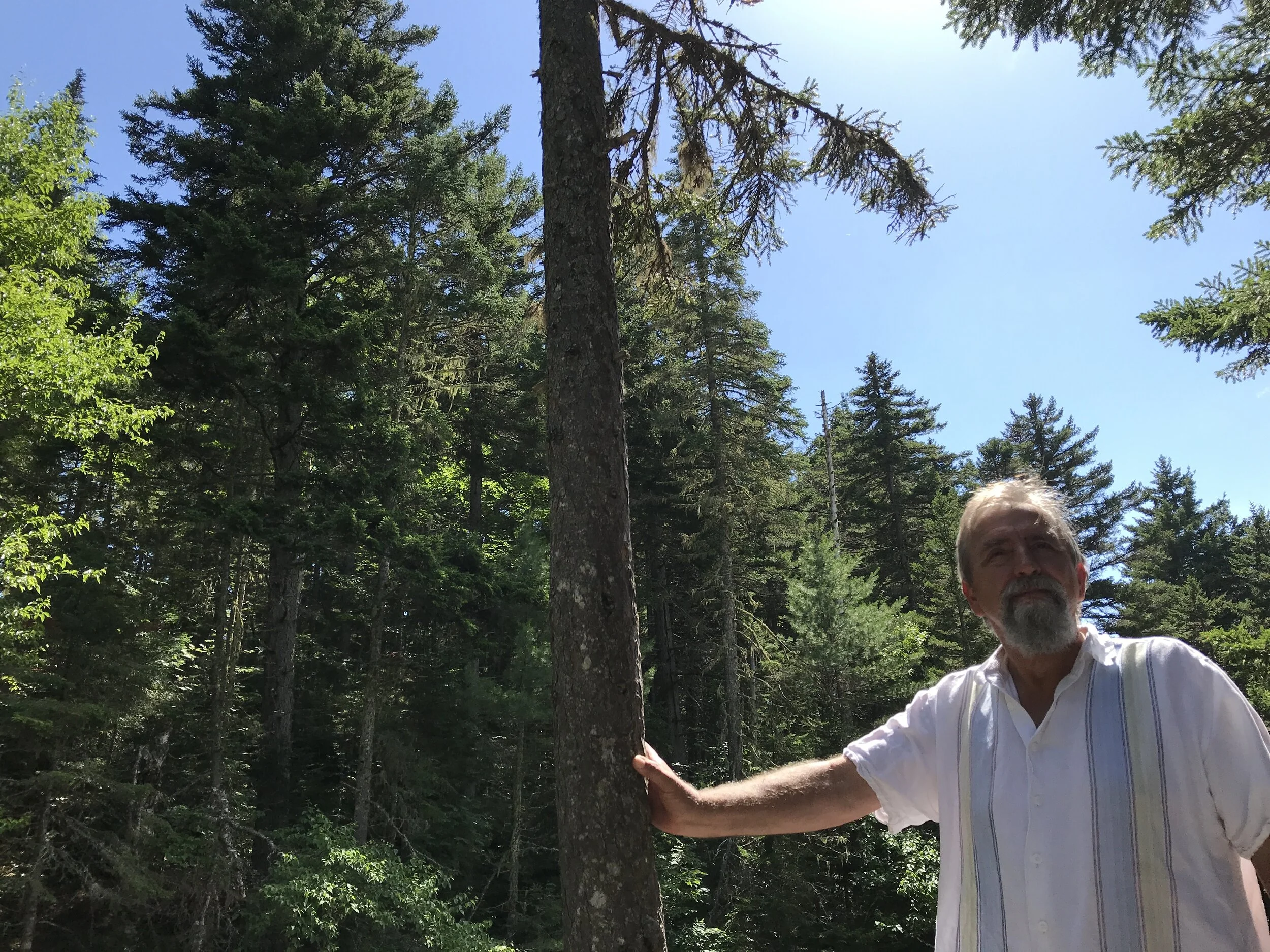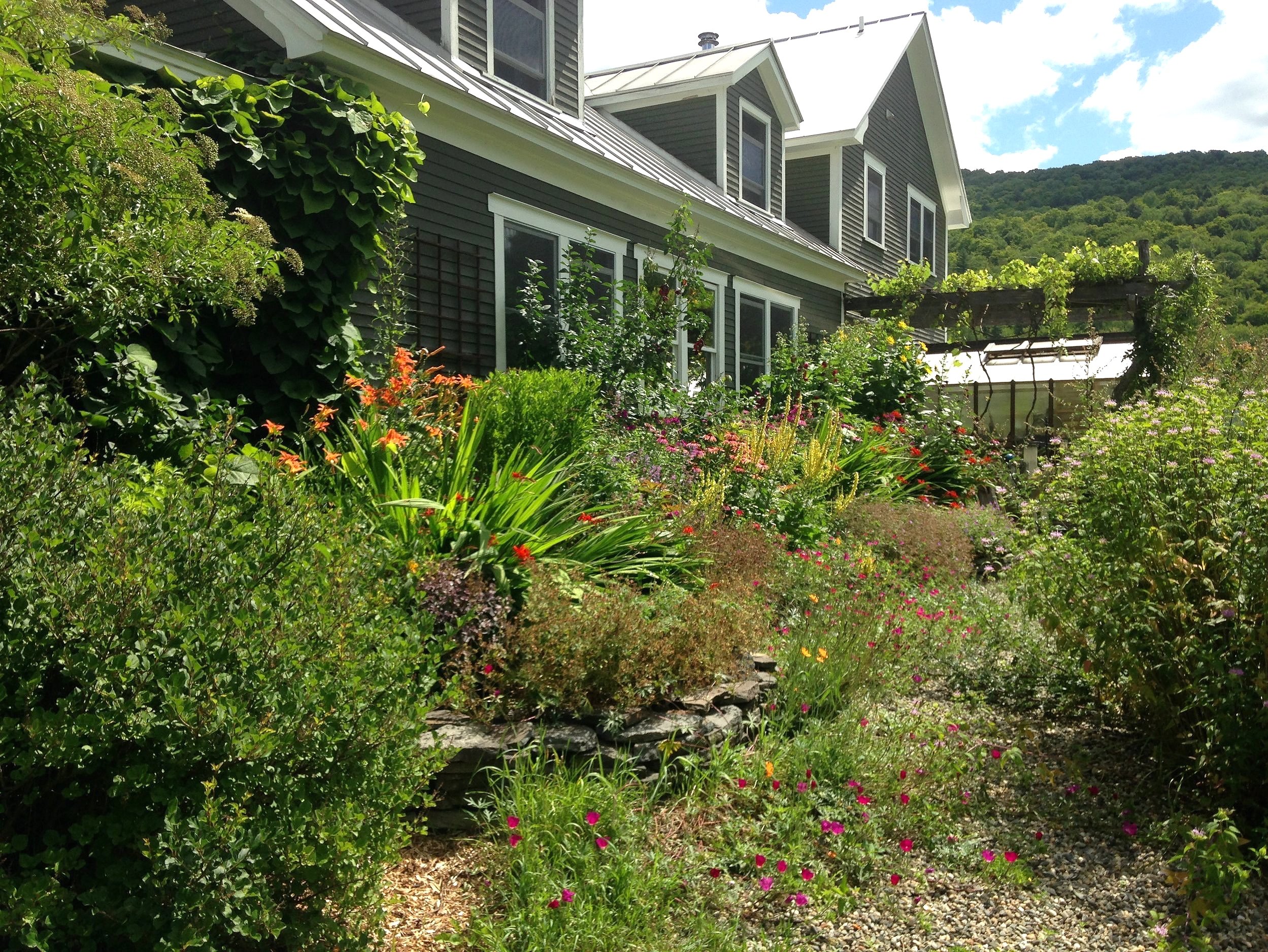50 years of honest labor, sweet adventure and who knows how many stings. For 35 years Bee Have was a larger commercial operation, delivering bulk and jarred honey to most of Vermont’s then core food specialty stores and coops. BH’s apiaries were located north to south on the Champlain Islands and on down through Hinesburg’s back road dairy farm territories and into Vergennes and Charlotte, as well as the home farm apiary in Worcester/Putnamville. For the last 15 years BH was a smaller-scaled apiary focussing on old world-style, true raw honey, beeswax, hive medicines and garden-grown, herbal natural care products we sold only from our farm or from our stand at the Capital City Farmer’s Market the decade we vended there.
Bee Haven was Rick’s life creation. Hailing from Detroit, MI, where he performed with the Wayne State Children’s Theater, was a roadie for the MC5 and ran a small trucking business hauling bulk foods for early food coops. He left soon after the riots there to bike the west coast north to south. After cooking and diving for abalone for awhile in California, he left as a merchant marine, which landed him in the Canadian Maritimes, and from there, south to join up with Detroit friends in the Rutland, Vt. area in the early ‘70’s. It was in Vt. he first learned to keep bees from an old time neighbor. He ended up with them on the roof of his Summer St. apt. in Montpelier’s Meadow’s neighborhood, after he moved there from Proctor. Lucky bees. They got to gather the nectar of the beautiful early spring flowering trees in that neighborhood, that are still so beloved there as a herald of spring. Going on to serve as the first full-time Vermont State Apiarist for almost a decade, Rick inspected hives with his dog Max, trained to sniff out foul brood. He eventually moved onto the old Norton dairy farm in Putnamville/Worcester, where he could really dig in and create a working bee farm and that’s how Bee Haven as a farm was born. Rick loves roaming woods and playing in the waters when he isn’t with bees. Long may it last.
Gen grew up in rural Minnesota when family farms were being overtaken by big Ag, in the territory along the Minnesota River in the southwest, the tribal lands of the Mdewakanton and Wahpekute bands of Dakota people. Her father’s love of travel meant she and her siblings spent some of their childhood wearing dog tags in case they got lost in far away locations. The different worlds she grew up in resulted in a strong case of the how’s and why’s for her. She went on to study Philosophy, Religious Studies and Psychology and to work with children and adolescents impacted by trauma, violence and abuse in residential and wilderness treatment settings. Once she got to Vermont she worked as a traveling family therapist, later opening a group psychotherapy practice with other like-minded's that’s still around today. In 2005, she began working with Rick and the bees a bit and after a few years she joined them full time. Very much a hygienic bee, she loves to fuss over the hive, tend to things, spend time with plants and seek a good watering hole and she’s equally comfortable in the dark as in the light.



